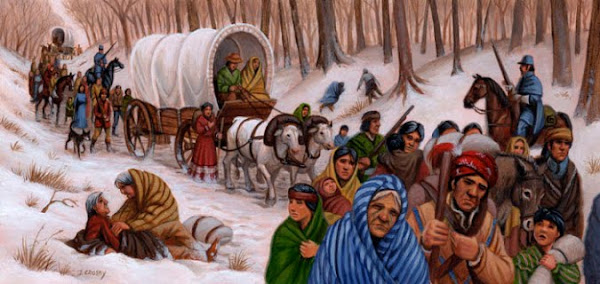15 December, 2009
October 18, 1830
When I was in town last, one of my white friends read me an article in "The North American Review" entitled, Removal of the Indians. It appears that many of the white Americans are supportive of our claims. The article claims that "so far as the people of the United States understand the subject, and are free from the influence of violent political partialities, their feelings are almost universally favorable to the claims of the Indians." How can this be if the leadership of the United States is still bent on forcing us out? Why don't the American people do something to help us? (Removal of the Indians, 396).
Subscribe to:
Post Comments (Atom)


No comments:
Post a Comment